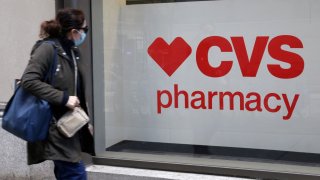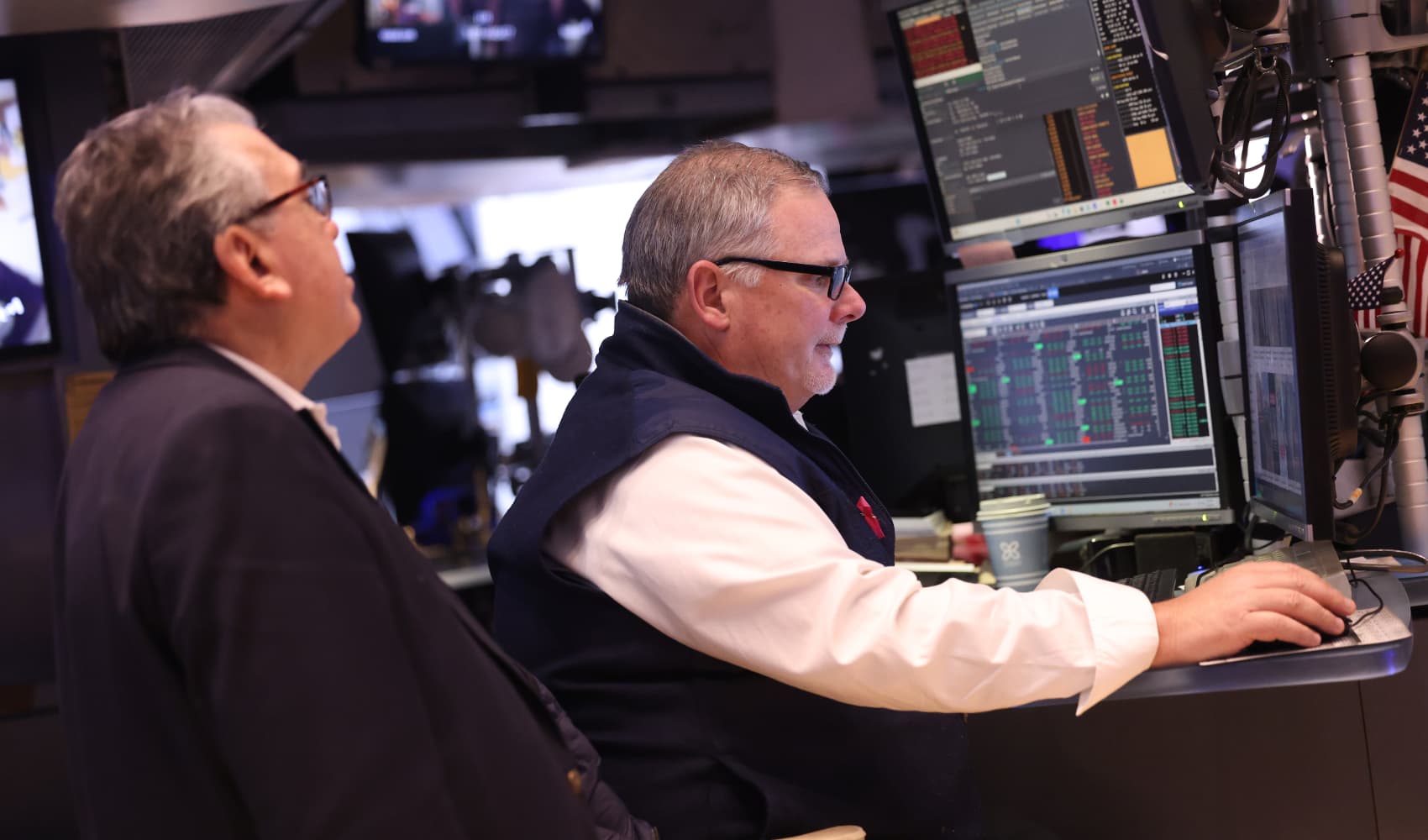
- CVS Health said it will revamp how it prices prescription drugs, doing away with a complex model that typically determines how much pharmacies get reimbursed and how much patients pay for medications.
- The new effort makes CVS the latest company to try to upend the traditional prescription drug pricing system, which has faced years of political scrutiny for what critics call a lack of transparency and inflated health-care costs for U.S. consumers.
- CVS will launch a new model for reimbursing its pharmacies on Jan. 1, 2025, executives said during the company's 2023 investor day.
CVS Health on Tuesday said it will revamp how it prices prescription drugs and scrap a complex model that typically sets how much pharmacies get reimbursed and what patients pay for those medications.
The new effort makes CVS the latest company to try to upend the traditional prescription drug pricing system, which has faced years of political scrutiny for what critics call a lack of transparency and inflated health-care costs for U.S. consumers.
CVS will launch a new model for reimbursing its pharmacies on Jan. 1, 2025 for commercial payors, executives said during the company's 2023 investor day.
We're making it easier for you to find stories that matter with our new newsletter — The 4Front. Sign up here and get news that is important for you to your inbox.
CVS' new model could change the cost of prescription drugs for some patients, but it will not necessarily make all medicine cost less, company executives said. Some dcirugs may cost less, while prices of others might rise, they noted. But more prescription costs should fall than climb for consumers, employers and health insurers, according to the executives.
Still, CVS is "committed to lowering drug pricing" and making the process more transparent, CEO Karen Lynch said on CNBC's "The Exchange" on Tuesday.
"What this does is it essentially aligns the economics of our pricing for drugs to what consumers will pay at the pharmacy counter," Lynch said of the new model. "What people have been saying is, 'We don't understand, it's not transparent, it's not easy to understand how much drugs cost.'"
Money Report
"We're changing that," she added.
Shares of CVS closed nearly 4% higher on Tuesday following the company's investor day, where it also issued a better 2024 revenue forecast than Wall Street expected.
CVS said the plan, named CVS CostVantage, will use a "sustainable and transparent" formula to determine a medication's price and the corresponding reimbursement pharmacies receive from pharmacy benefit managers. Those middlemen negotiate drug discounts with manufacturers on behalf of health insurers, large employers and others that contract them.
Under the new model, CVS' more than 9,000 retail pharmacies will get reimbursed by PBMs and other payors based on the cost of the drug, a "clearly defined" markup, and a fee to cover handling and dispensing the prescriptions, said Prem Shah, president of CVS' pharmacy and consumer wellness segment, during the company's investor day.
Lynch told CNBC: "It's a cost plus markup, plus a fee. And that's the transparency of what we're trying to do."
Currently, pharmacies are typically paid using a complicated system not directly based on what they spent to purchase drugs. That model, which involves a multitiered network of insurers, drug manufacturers, PBMs and pharmacies, leads to ambiguity around fees and markups added to the original cost of a drug.
Billionaire Mark Cuban last year launched an online pharmacy that takes a similar approach to CVS' new reimbursement model. The company, called Cost Plus Drugs, aims to drive down the price of medicines broadly by selling them at a set 15% markup over their cost, plus pharmacy fees.
Cuban said in an email to CNBC that he has "no reaction at all" to CVS's new model.
Cuban's venture is already shaking up the broader health-care industry: CVS suffered a blow over the summer when a major California health insurer, Blue Shield of California, announced it will no longer use the company as its PBM and instead will partner with several companies, including Cuban's firm and Amazon Pharmacy.
CVS Health's Caremark is one of the major PBMs in the U.S. Caremark and other PBMs have faced increased scrutiny over their role in surging drug costs, and the Federal Trade Commission is also investigating their practices.
Cuban's drug company has put pressure on other companies that manage drug benefits to make their own changes. For example, Cigna announced last month that its PBM will offer a pricing model similar to Cost Plus Drugs.
The Biden administration is taking its own steps to rein in prices of medications.
As part of the president's Inflation Reduction Act, the administration in August announced the first 10 prescription drugs that will be subject to drug price negotiations with the federal Medicare program, which aims to make costly medications more affordable for older Americans.
Don't miss these stories from CNBC PRO:
- Saudi Arabia is struggling to boost oil prices, raising possibility of supply war with U.S.
- Here's where to invest $250,000 for the next 5 years
- Citi is so bullish on this biotech stock it gives it 800% potential upside
- 'It's beginning to look a lot like VIX-mas.' What Wall Street's fear gauge is saying right now






